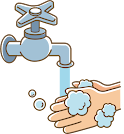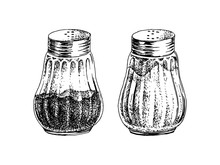* This post was originally written in the long-ago before time of 2012. It's held up pretty well, all things considered. The good news is that human physiology hasn't fundamentally changed in those 10 years even though it seems like the whole world changed in 2020. I''ve updated and reposted this in the hope of encouraging every eligible person to make every effort to get & keep your covid vaccines and boosters up to date.
And wear your mask in public indoor spaces or anywhere that your human body gets within 6 feet of any other human body that you don't already live with.
And wash your dang hands.
-----------
I think it does a disservice to Holistic Health when we call it "alternative medicine".
"Alternative" means another choice, but it also implies a mutually exclusive, this-or-that choice. I don't think health and healing works that way. No one symptom exists in isolation.. People are whole, interconnected organisms, even at the purely physical, biological level. Add to that the connections of body to mind and spirit. Add to that the connections of relationships and social functioning. Health and healing is a "big picture" venture. "Mainstream" and "Alternative" medicine can (and do) work together - hence the names "complimentary" and "Integrated" medicine. In the totality of health care, allopathic, homeopathic and holisitic are all different paths to the same mountain top, namely facilitating natural health and healing. Only the body heals itself. Whatever approach you use, everything the doctor or healer does serves to lend our inner nature a hand, not impose some miracle from the outside. The difference comes in deciding which is the BEST approach in a given situation. Sometimes the best answer isn't "this" or "that". Sometimes the best answer really is "all of the above".
The gap between mainstream, 'scientific' Allopathic health care and Holistic Health is narrowing. The more science studies holistic health, the more common ground is found. Naturopaths were promoting hygiene long before the days of penicillin and polio vaccines. The "Nature Doctors" have been telling people to wash their hands for hundreds of years.
Vaccines are another area where modern medicine and holistic health finally agree. Now I'm sure many of you natural health fans are bristling at that and are ready to stop reading...but wait a minute first.
I realize there are religious objections to vaccines. Those are personal decisions, and outside of the scope of this post. I know there has been panic and mis-information about connections between vaccines and autism, not to mention legitimate problems with preservatives and allergies - but consider this for a minute: homeopathy.
The theory behind homeopathy is that the symptoms in an illness are actually evidence of the body's healing processes, not evidence of the disease process. So tiny doses of a substance that induces the same set of symptoms is given to help and support that inner self-healing. As the adage says, "like cures like".
Now look at how vaccines work. A tiny bit of killed or weakened viruses or bacteria (or more recently protein fragments of a virus) are given to teach your body how to protect itself against that particular microbe and the disease that it causes. The microbe or protein fragment containing vaccine directs and helps our natural inner germ-fighting system. The modified microbe helps the body self-cure the microbe-caused disease before it even progresses enough to cause serious disease. In essence, like cures like. Sounds a little like homeopathy, doesn't it? Yet vaccines are supported by hard science, and are time-proven good medicine.
Whether you are an advocate of holistic health, or a pure mainstream kind of person - vaccines make sense. It keeps individuals healthy and it helps to keep the community as whole healthier too.
Now - go wash your hands.



